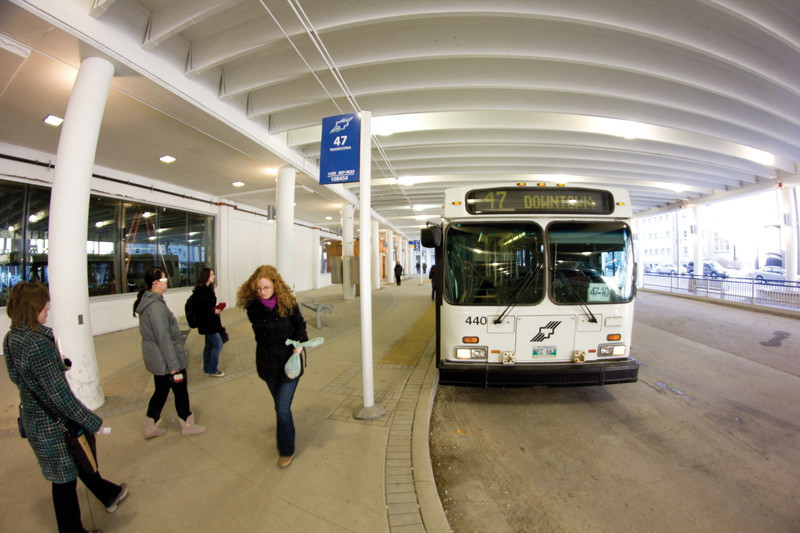Can Winnipeg afford an adequate level of bus safety?
City struggles to address safety concerns as transit workers demand increased enforcement
Unions representing transit workers in Winnipeg are calling for the development of a transit police system, but municipal budget pressures are preventing its development.
Jim Girden, president of Winnipeg’s Amalgamated Transit Union Local 1505, wants a force that has sufficient numbers, power and money to be able to respond to safety concerns on any route at any time of day.
“There needs to be safety for everyone at all times on the bus, it’s not just about the drivers,” he said.
Girden adds that over the last few years, the nature of conflicts on Winnipeg buses has changed.
“We are seeing an upswing of violence not just related to fares,” he said. “Operators are telling me now it seems there are many people just looking for a fight.”
On Oct. 2, city administration presented a safety strategy for bus operators to council’s public work’s committee.
The report detailed efforts on technological modifications to buses, including cameras, fare counters and safety shields.
However, the report provided no recommendations on the possibility of developing a transit police, nor did the report outline the financial possibility of increasing the number of inspectors or supervisors.
“ We are seeing an upswing of violence not just related to fares. Operators are telling me now it seems there are many people just looking for a fight.
Jim Girden, president, Amalgamated Transit Union Local 1505
Committee member and Fort Rouge Coun. Jenny Gerbasis said the city has begun adding more transit inspectors to the system to try to address these issues while the long term strategy is developed.
“The problem is new inspectors cost us $400,000 to $500,000,” Gerbasi said.
“It takes four people to staff every 24 hours of monitoring. But inspectors are cheaper than police officers are. We’ve considered having police cadets sit on buses. At the same time we need to make sure we are allocating our resources appropriately to all safety concerns in the city.
“It is hard to determine where the most important place for officers and cadets to be is,” she said.
Bill Comstock a representative for Winnipeg Association of Public Service Officers (WAPSO), the union representing the current transit inspectors and managers, was clear his members are not the right group to be dealing with preventing or managing situations of violence.
“WAPSO members were not hired to be a police force,” he said. “Our members come in all shapes, sizes and ages.”
Comstock also wants to see a force tasked with providing transit safety alongside his members.
Experience shows police cannot respond in a timely manner to incidents, he said.
Dave Sauer, president of the Winnipeg Labour Council, provided a submission to the committee criticizing the report.
Unions are in favour of a security force being able to respond to incidents on buses and want to see punitive measures against those that assault operators, Sauer stated.
The city must address the issue swiftly, Gerbasi said, noting she remains open to more collaboration on developing the strategy.
“If we want our transit system to grow and encourage more environmentally friendly transportation we need a transit system people feel safe riding,” she said.
“We need to figure this out.”
Published in Volume 67, Number 6 of The Uniter (October 11, 2012)







